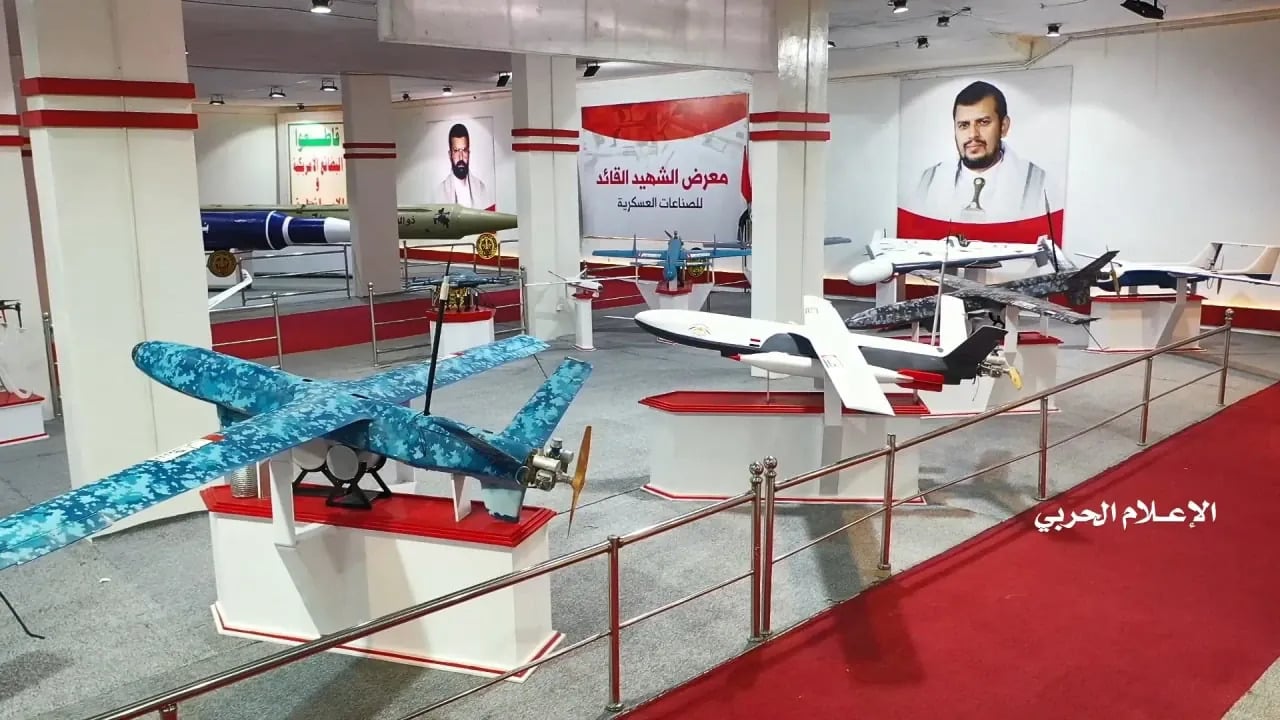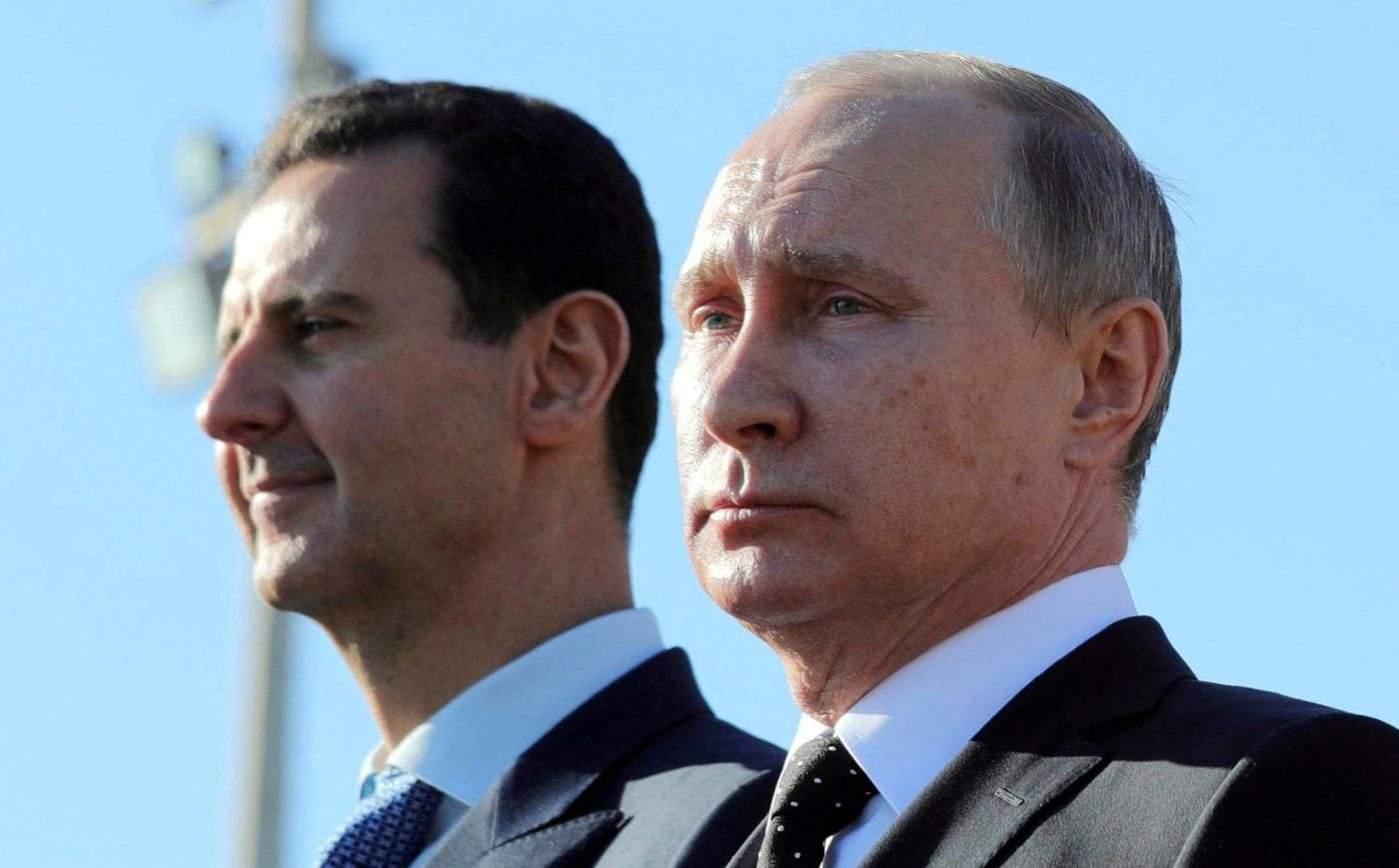
Houthi media
21-02-2024 الساعة 2 مساءً بتوقيت عدن

’The exaggerated narrative about the impact of the American decision is apparently an attempt to protect the Houthis. This is similar to what happened in February 2021 when the Biden Administration removed the group from the terrorism list for humanitarian considerations.’
Abdullah Al-Shadli (South24)
On February 16, 2024, the United States’ re-designation of the Iran-backed Houthis as a ’Specially Designated Global Terrorist‘ group came into effect, after the expiration of the 30-day deadline by the Biden Administration to carry out measures that would protect Yemenis from any adverse effects of the move, according to the White House statement of January 17.
After the decision took effect, questions have been raised about the impact of this move on the Houthis who haven’t been deterred by tens of American-British strikes for more than one month. They continue targeting international shipping in the Red Sea and the Gulf of Aden. Moreover, there are growing concerns about the likelihood of such a development backfiring on the Yemeni people. This is despite the US taking measures in this regard.
The Houthi Response
The Houthis’ official response included statements by their Spokesman and Chief Negotiator Mohammed Abdulsalam, the group’s Foreign Ministry, and other figures affiliated with the militia. Abdulsalam wrote on ’X‘ that “the designation decision reflects a side of the disclosed and exposed American hypocrisy with which it aims at harming Yemen to support Israel and encourage it to continue the genocide war against the Palestinian people”.
In a statement issued by the September 26 Newspaper, the so-called ’Houthi Foreign Ministry‘ said: “We condemn the American double-standard policy. We confirm the continuation of targeting Israeli, British, and American vessels until the end of the siege on Gaza.”
The Houthi response hasn’t been limited to these statements as the militia escalated their military naval attacks. It targeted the British oil ship ’Pollux‘ on Sunday (February 18). Moreover, the following day, they carried out two attacks in the Gulf of Aden, one of which targeted the British-registered cargo ship ‘Rubymar’, which was badly damaged with reports that it might sink.
The second attack targeted the cargo ship ’Sea Champion‘ which was carrying corn shipment from Argentina to the Port of Aden, according to data by the British maritime security company ’Ambrey‘ and the specialized website ’Marine Traffic‘.
On Feb 17, the ‘US Central Command’ (CENTCOM) announced that it “successfully conducted five self-defense strikes against three mobile anti-ship cruise missiles, one unmanned underwater vessel (UUV), and one unmanned surface vessel (USV) in Iranian-backed Houthi-controlled areas of Yemen. This is the first observed Houthi employment of a UUV since attacks began on Oct. 23”.
Possible Effects
- On the Houthis:
In a previous analysis, Farida Ahmed, Executive Director of ’South24 Center‘, downscaled the possible impact of the US’ SDGT re-designation of Houthis. She said: “It is important to state that the Houthis have amassed huge wealth during the years of conflict in Yemen. Moreover, the impact of the banning measures on the Houthis will be below international expectations.”
Related: The «SDGT» Designation of Houthis - What Next?
She referred to a report by the ‘Panel of Experts on Yemen’ affiliated with the UN Security Council which estimates that the Houthis diverted at least $1.8 billion in one year. The report confirms that “their average amount of looted money exceeds $14 billion. This money is being laundered through new investments as well as buying real estate and lands. Part of the money is allocated for political gains and military efforts”.
Farida Ahmed added: “This is in addition to foreign monetary aid that they have possibly received from Iran’s 'Islamic Revolutionary Guard Corps’ whose official budget is $8.2 billion. Iran spends $16 billion annually to support terrorists and rogue regimes, according to the ‘Foundation for Defense of Democracies’ (FDD)”.
Likewise, Mohammed Al-Basha, senior Middle East analyst at the American consulting group ’Navanti‘, minimized the direct impact of the sanctions on the Houthis.
He told “Alhurra” that “the sectors that will be harmed are in fact the institutions relying on the dollar including banks, the Aviation Authority, the ports of Al-Hodeida, the communication companies, oil, and gas”. He added: “The previous American sanctions demonstrated that the Houthis don’t deal with the international banking or financial system but they rely on money changers and mediators. Therefore, they don’t care about these sanctions.”
- On the Political Path
Experts and observers who previously spoke with ’South24 Center‘ predicted that the political path of the Yemeni crisis, which has recently revolved around the Omani-facilitated direct talks between Saudi Arabia and the Houthis, will only experience a limited impact due to the SDGT redesignation of the Houthis. This is because it is a second-degree designation that aims to harm the Houthis economically while maintaining a space for politics and diplomacy.1
However, the Yemeni political path which was already facing challenges before the current developments, is frozen now. This is in light of the escalation of the Houthi naval attacks and the response by the United States and Britain. Nonetheless, Saudi Arabia, which is eager to secure a safe exit deal from the Yemeni crisis, apparently faces a difficult situation. This is because the calculations of the Yemeni file interfere with those related to the wider regional scope and what is happening in Gaza.
-On Yemenis
The Houthis control vast areas in South Yemen which has the biggest population bloc in the country. This has enhanced the humanitarian concerns related to the possible economic impact over their SDGT designation since the Houthis constitute the de facto authority there. The fears also extend to South Yemen areas, home of the Internationally-Recognized Government. This is due to the expected difficulties related to the entry of food, medicine, and fuel supplies to the country as well as the remittances of Yemeni expatriates and the activities by the UN aid and humanitarian organizations there.
Practically, people in the areas controlled by the Houthis don’t enjoy the state’s privileges. They haven't received their salaries for years notwithstanding the massive resources collected by the Houthis from taxes, the communication sector and the busy Port of Al-Hodeida.
Related: Houthis Naval Attacks Threaten Yemenis with More Hunger
Additionally, the Houthi areas receive a large part of the international humanitarian aid despite the challenges related to dealing with the group. This was recently made clear when the World Food Programme (WFP) paused its general food aid to North Yemen in December 2023.
The WFP said that the move “was driven by limited funding and the absence of an agreement with the authorities on a smaller programme that matches available resources to the neediest families”.
Furthermore, the Houthi naval attacks constitute dangerous challenges for the Yemeni ports and the food supply chains. For example, on January 10, a Yemeni merchant told ’South24 Center‘ that “the shipping costs of the 40-feet containers from China to the Port of Aden had increased from $3,000 on November 22, 2023, to $6,200 on December 19 and jumped to $11,000 on December 25. On January 4, 2024, the prices ranged between a high of $9,600 to $9,950”.
Since November 2022, the Houthis have imposed a choking blockade on the ports of South Yemen to prevent oil and gas exports. This has caused an economic crisis that has affected a large section of the population and threatens to stop the salaries being paid by the recognized government to citizens. Despite all these economic calculations, the exaggerated narrative about the impact of the US decision is apparently an attempt to protect the Houthis. This is similar to what happened in February 2021 when the Biden Administration removed the group from the terrorism list citing humanitarian considerations then.
On February 14, 2024, Edem Wosornu, Director of the Operations and Advocacy Division at the UN Office for the Coordination of Humanitarian Affairs (UNOCHA), during a briefing on the situation in Yemen at the UN Security Council, said: “While the humanitarian community is also concerned about any potential adverse effects of the recent designation of the Houthis as a Specially Designated Global Terrorist, we note that General Licenses are designed to safeguard many transactions necessary for our humanitarian activities and essential commercial imports.”
She added: “We fear there may be an effect on the economy, including commercial imports of essential items on which the people of Yemen depend on more than ever. Humanitarian aid cannot make up for gaps in the supply of commercial goods.”
“Such effects may reverberate across the country. Yemen's already fragile economy cannot handle any further major shocks.”
Wosornu indicated that transport costs to Yemen's Hodeidah and Aden ports had "significantly increased since November due to the ongoing hostilities”.
She also pointed out that “The WFP has reported increases of up to 110% for containerized shipments to Yemen. Other humanitarian organizations have seen freight rate increases of up to 318%”.
On the other hand, the US Department of the Treasury in a readout issued on January 27 said the Office of Foreign Assets Control issued “five additional general licenses in conjunction with the announcement of the Houthis’ designation to further minimize disruptions to the flow of humanitarian assistance, essential commercial goods, and personal remittances to Yemen”.
These licenses include:
● General License 22 — “Transactions Related to the Provision of Agricultural Commodities, Medicine, Medical Devices, Replacement Parts and Components, or Software Updates Involving the Houthis".
● General License 23 — “Authorizing Transactions Related to Telecommunications, Mail, and Certain Internet-Based Communications Involving Ansarallah”.
● General License 24 — “Authorizing Noncommercial, Personal Remittances Involving the Houthis”.
● General License 25 — “Authorizing Transactions Related to Refined Petroleum Products in Yemen Involving the Houthis”.
● General License 26 — “Authorizing Certain Transactions Necessary to Port and Airport Operations Involving the Houthis”.
On February 17, Saudi channel “Al-Hadath TV” cited Rashad Al-Alimi, Chairman of the Presidential Leadership Council, as saying that “the redesignation of the Houthis as a terrorist group won’t harm Yemeni people”.
On February 5, Yemeni Foreign Minister Ahmed Awad bin Mubarak was appointed as the new Prime Minister. Bin Mubarak, who served as the Yemeni Ambassador to the United States between 2015-2020, maintains close ties with Washington, according to US Ambassador Steven Fagin. This can probably help to direct the effects of the re-designation of Houthis against the group itself while minimizing its repercussions on the Yemeni people.
1 The Trump Administration had designated the Houthis as SDGT group and Foreign Terrorist Organization (FTO) in February 2021. While the Biden Administration has redesignated the Iran-backed militia as SDGT it has not re-imposed the more severe FTO designation.

قبل 1 شهر